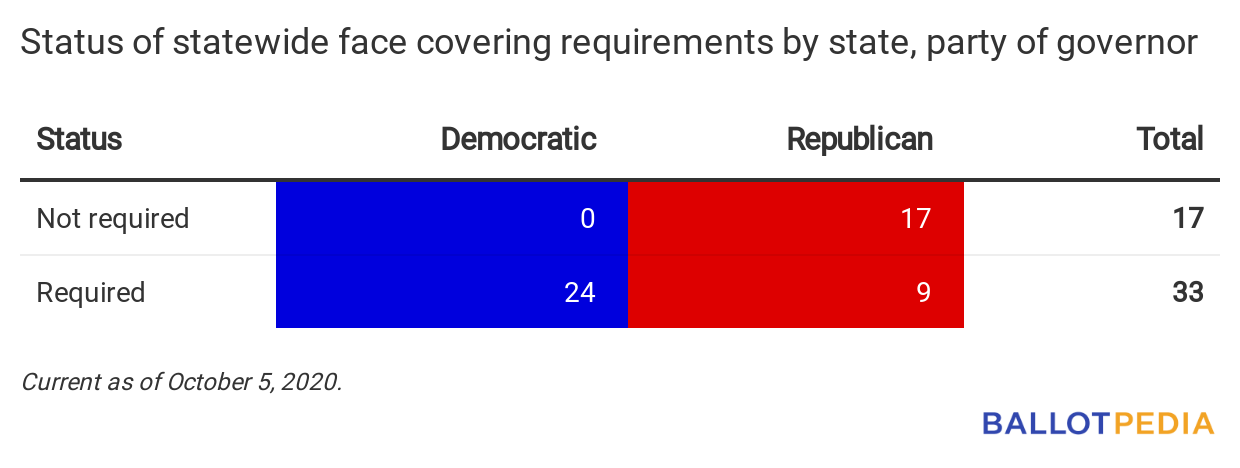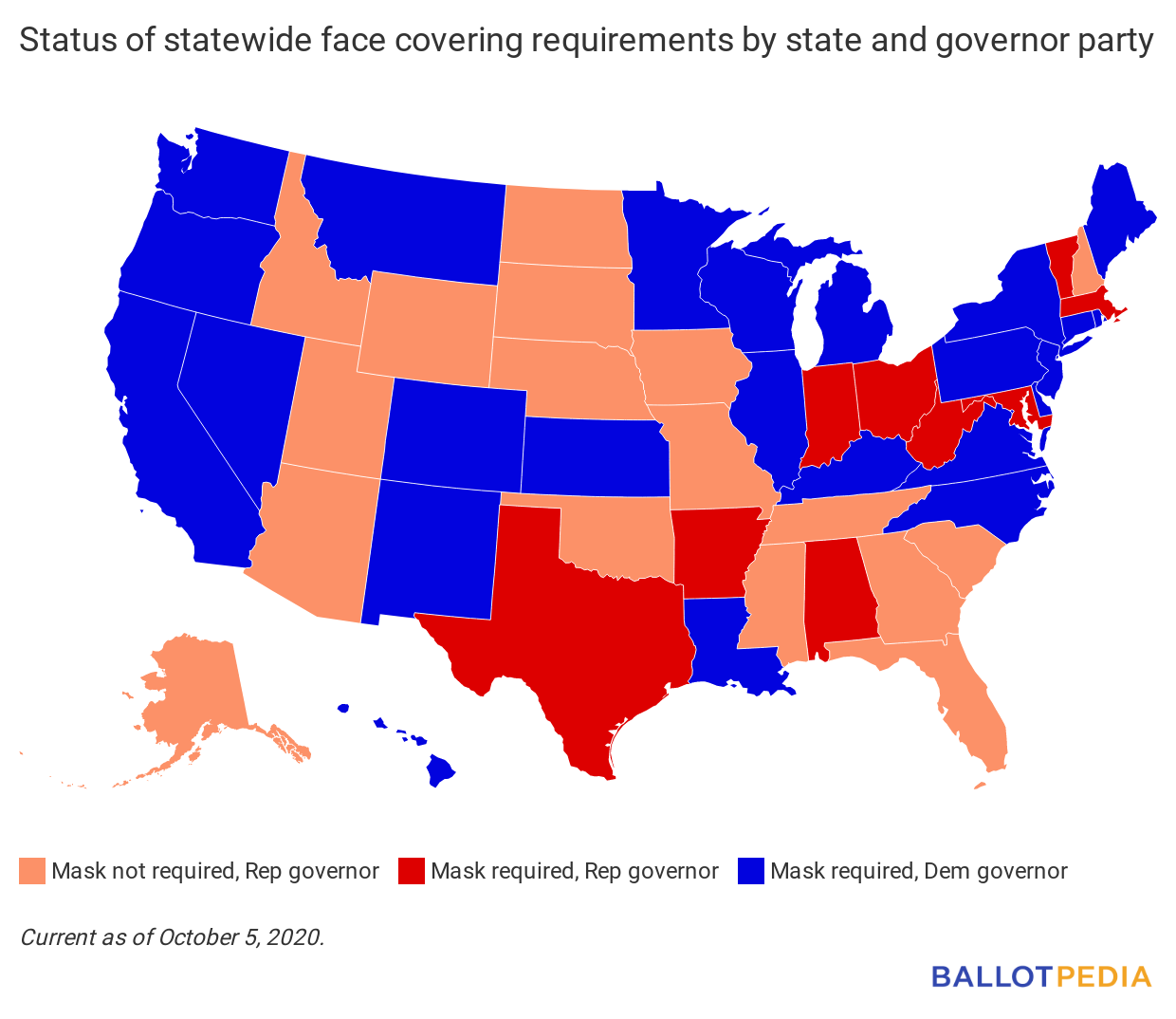Welcome to Documenting America’s Path to Recovery, where we track the status of reopening in all 50 states. Today we look at a Michigan Supreme Court decision that affects the state’s coronavirus restrictions, the end of capacity limits on restaurants in South Carolina, mask mandates, and more. Want to know what happened Friday? Click here.
Since our last edition
What is open in each state? For a continually updated article on reopening status in all 50 states, click here.
- Florida (Republican trifecta): Pre-K, kindergarten, and first grade students in the Miami-Dade Public School district returned to classrooms Monday, Oct. 5. Students in higher grades will return to classrooms on Wednesday and Friday. The Miami-Dade Public School district is the largest district in Florida and the fourth largest in the country.
- Iowa (Republican trifecta): On Friday, Oct. 2, Gov. Kim Reynolds (R) issued an order easing restrictions on bars, breweries, wineries, and distilleries in Johnson and Story counties. Breweries, wineries, and distilleries were permitted to reopen at 5 p.m. Friday, while bars were permitted to reopen on Monday, Oct. 5. Reynolds closed bars in six counties in August, but allowed most to reopen in September. Bars, breweries, wineries, and distilleries in Johnson and Story counties must enforce social-distancing rules in order to reopen.
- Massachusetts (divided government): Effective Monday, Oct. 5, cities and towns designated as “lower risk” on the state’s community spread map can advance to Step 2 of Phase 3 of the reopening plan. In Step 2 of Phase 3, indoor entertainment businesses like roller rinks and trampoline parks can reopen, and indoor and outdoor performance venues can operate at up to 50% capacity. Additionally, gyms, libraries, and museums will be permitted to operate at 50% capacity.
- Michigan (divided government): On Friday, Oct. 2, the Michigan Supreme Court ruled 4-3 that Gov. Gretchen Whitmer (D) lacked the authority to issue pandemic-related executive orders after April 30, 2020, when the legislature declined to extend the emergency and disaster declarations. The court ruled the Emergency Powers of the Governor Act (EPGA) of 1945, which was one of two laws on which Whitmer justified her orders, violated the Michigan constitution.
- New York (Democratic trifecta): Gov. Andrew Cuomo (D) announced schools in some New York City neighborhoods with higher positivity rates must close starting Oct. 6.
- Oregon (Democratic trifecta): Gov. Kate Brown (D) announced Benton and Clatsop counties were added to the state’s watchlist. The Oregon Department of Education also announced the state will disregard positivity rate data from September in determining whether school districts are allowed to reopen. School districts can now open for in-person instruction if their counties meet the state’s case count criteria.
- South Carolina (Republican trifecta): Gov. Henry McMaster (R) issued an executive order lifting capacity limits on restaurants, effective Oct. 2. Individuals are still required to wear face coverings at restaurants, and the sale and consumption of alcoholic beverages after 11 p.m. is still prohibited.
|
Daily feature: Face coverings
We last looked at face coverings in the Sept. 28 edition of the newsletter. Since then, Mississippi became the first state to allow its statewide public face covering requirement to expire, effective Sept. 30. The state still requires individuals to wear masks at schools and at businesses the state defines as close-contact (like barbershops and salons).
 
Additional activity
In this section, we feature examples of other federal, state, and local government activity, private industry responses, and lawsuits related to the pandemic.
- Majority Leader Mitch McConnell announced the U.S. Senate will not return to session until Oct. 19 after Sens. Ron Johnson (R-Wis.), Mike Lee (R-Utah), and Thom Tillis (R-N.C.) tested positive between Oct. 2 and Oct. 3 for the coronavirus. McConnell said Senate Judiciary Committee confirmation hearings for U.S. Supreme Court nominee Amy Coney Barrett will still begin Oct. 12.
|



